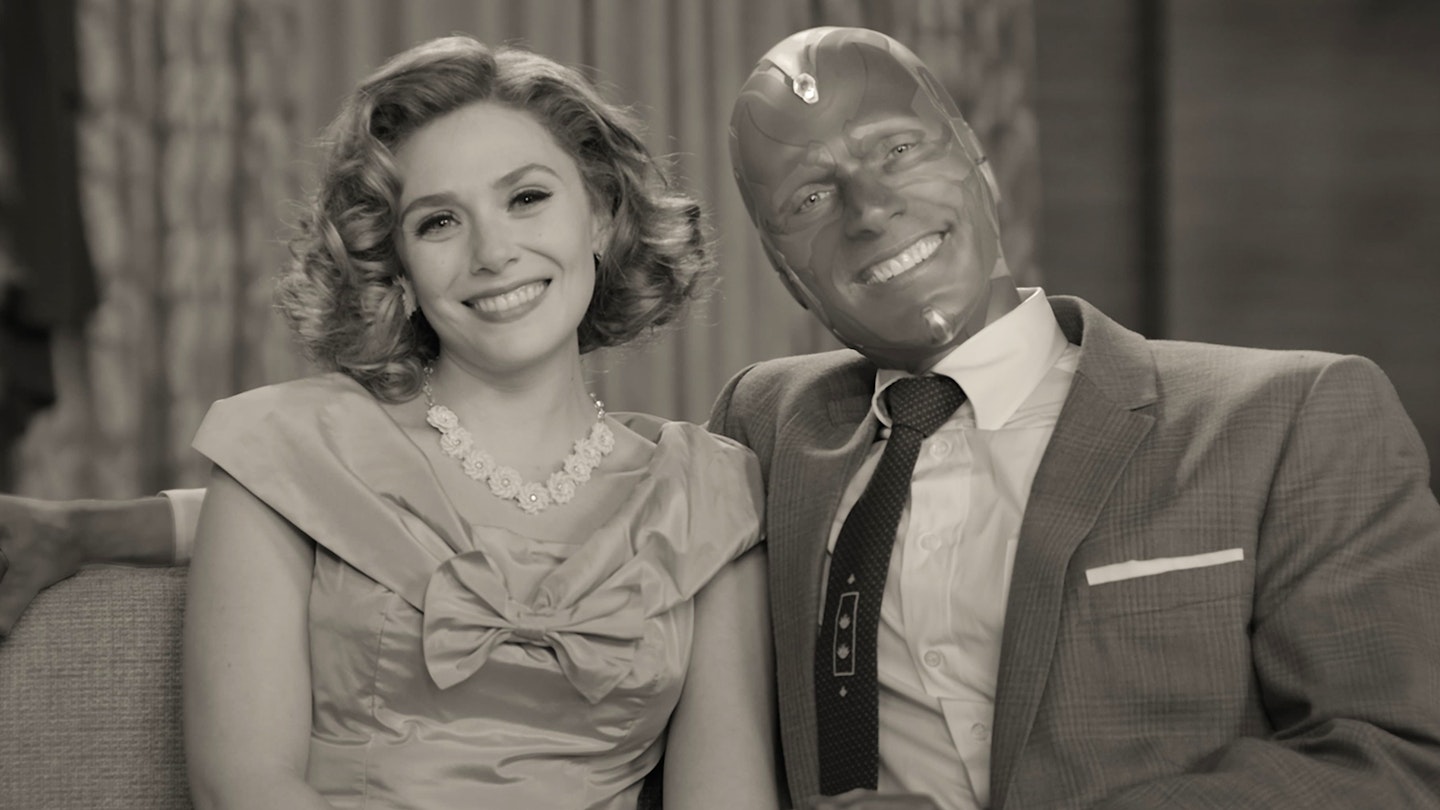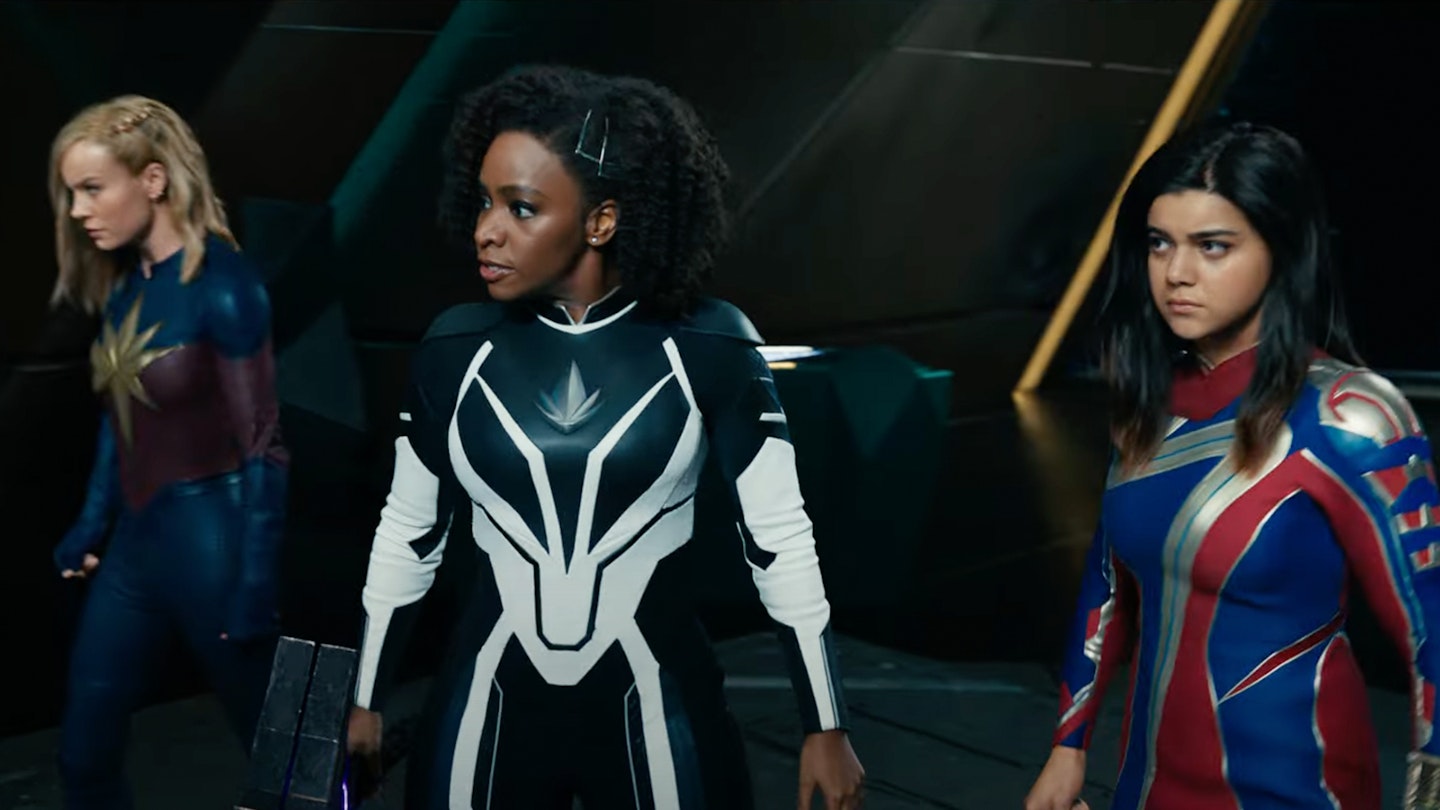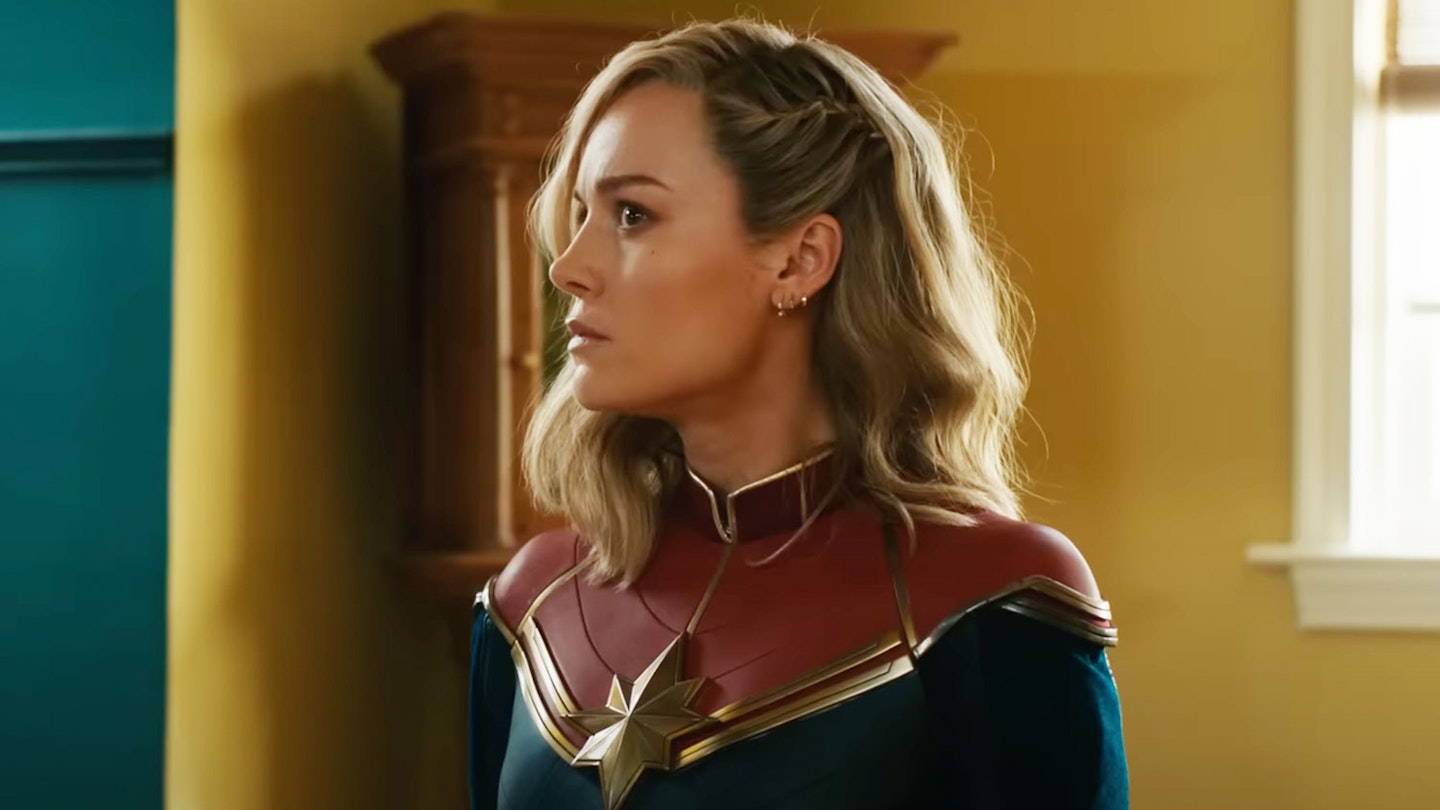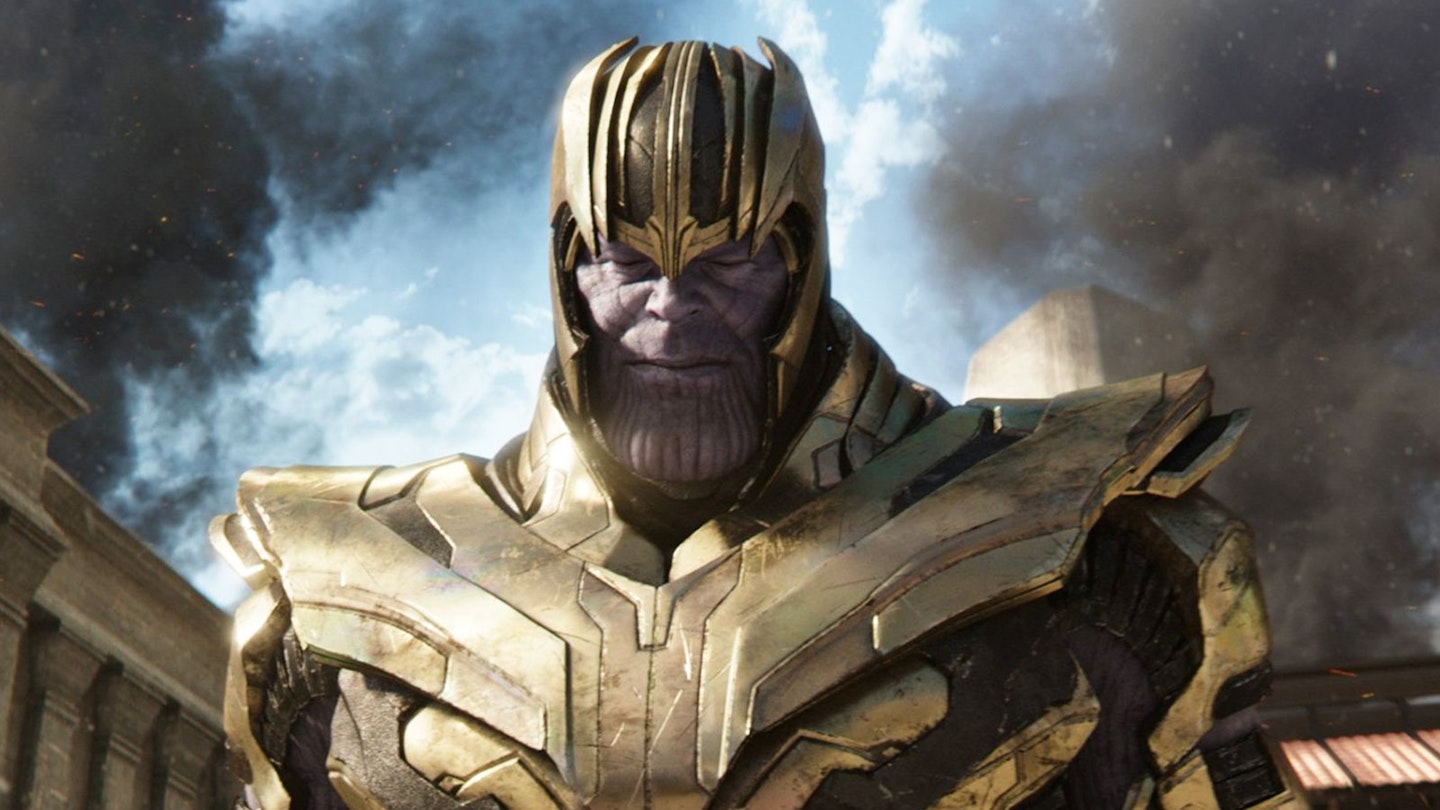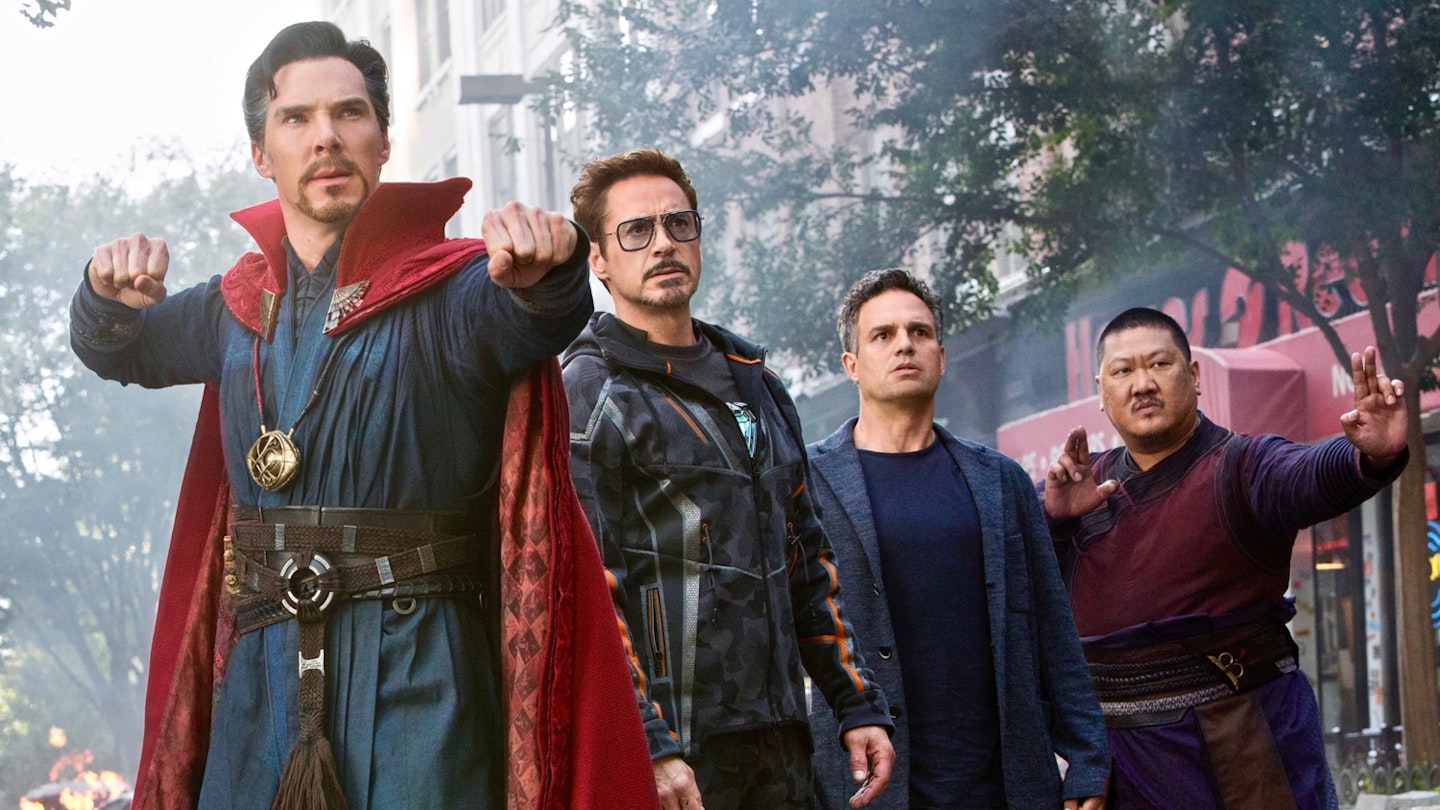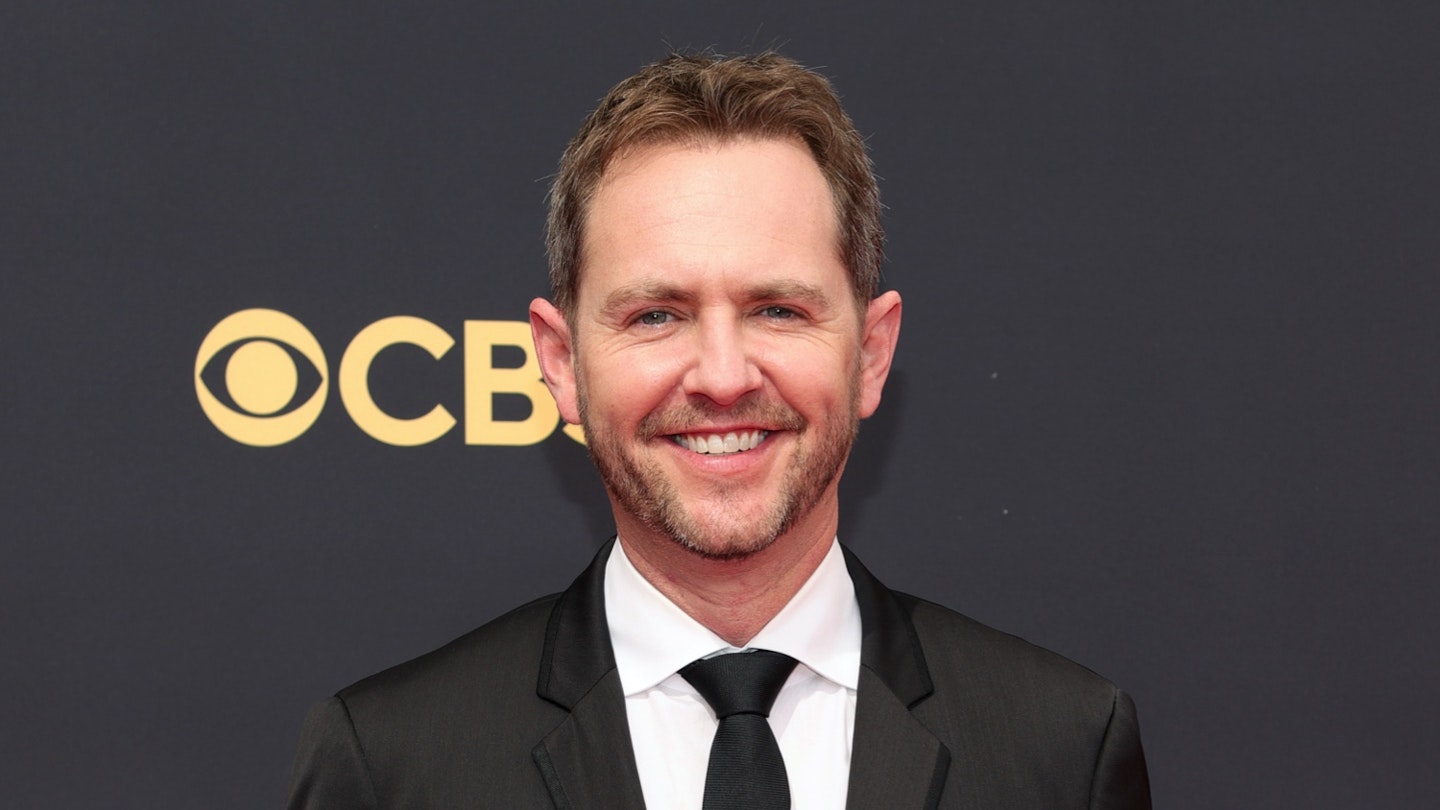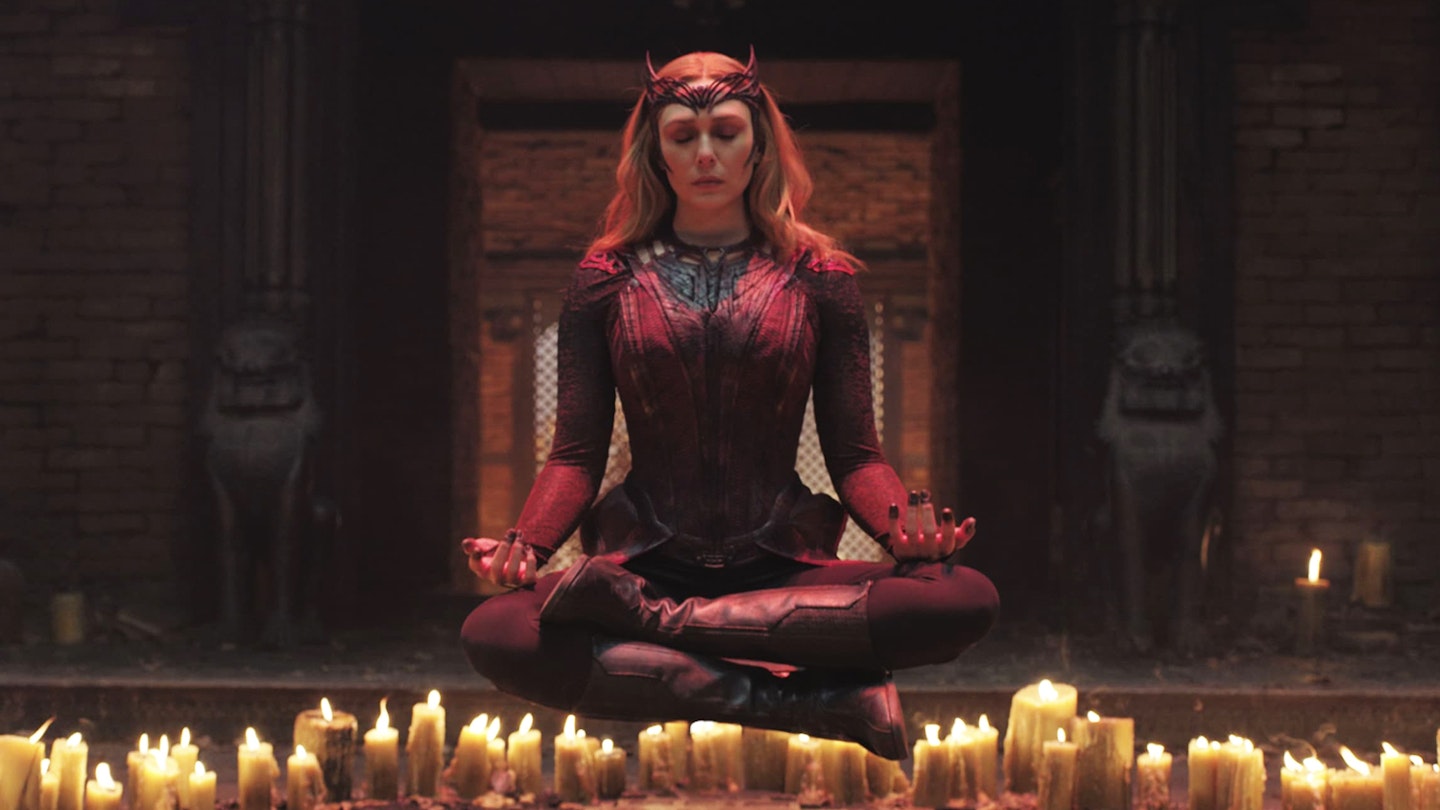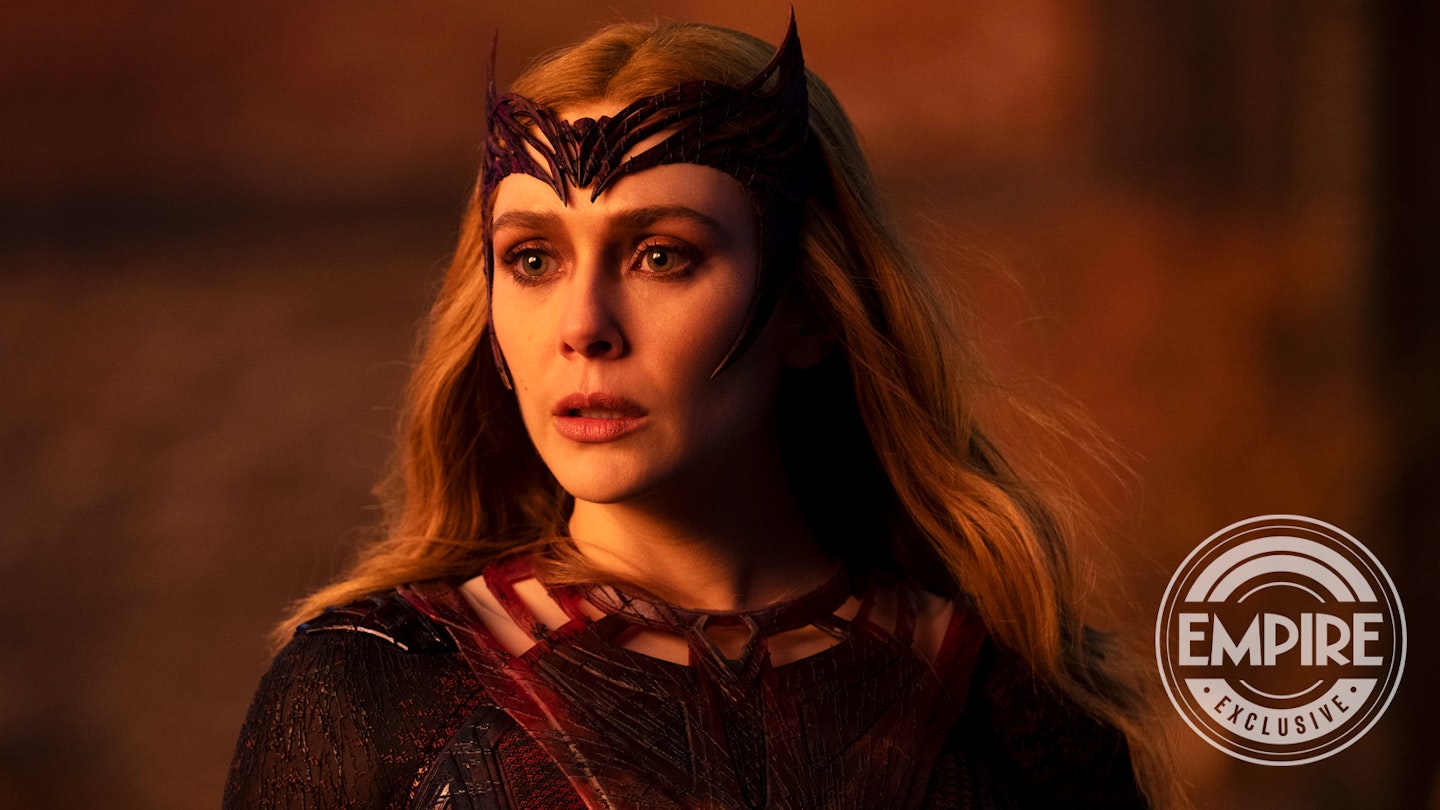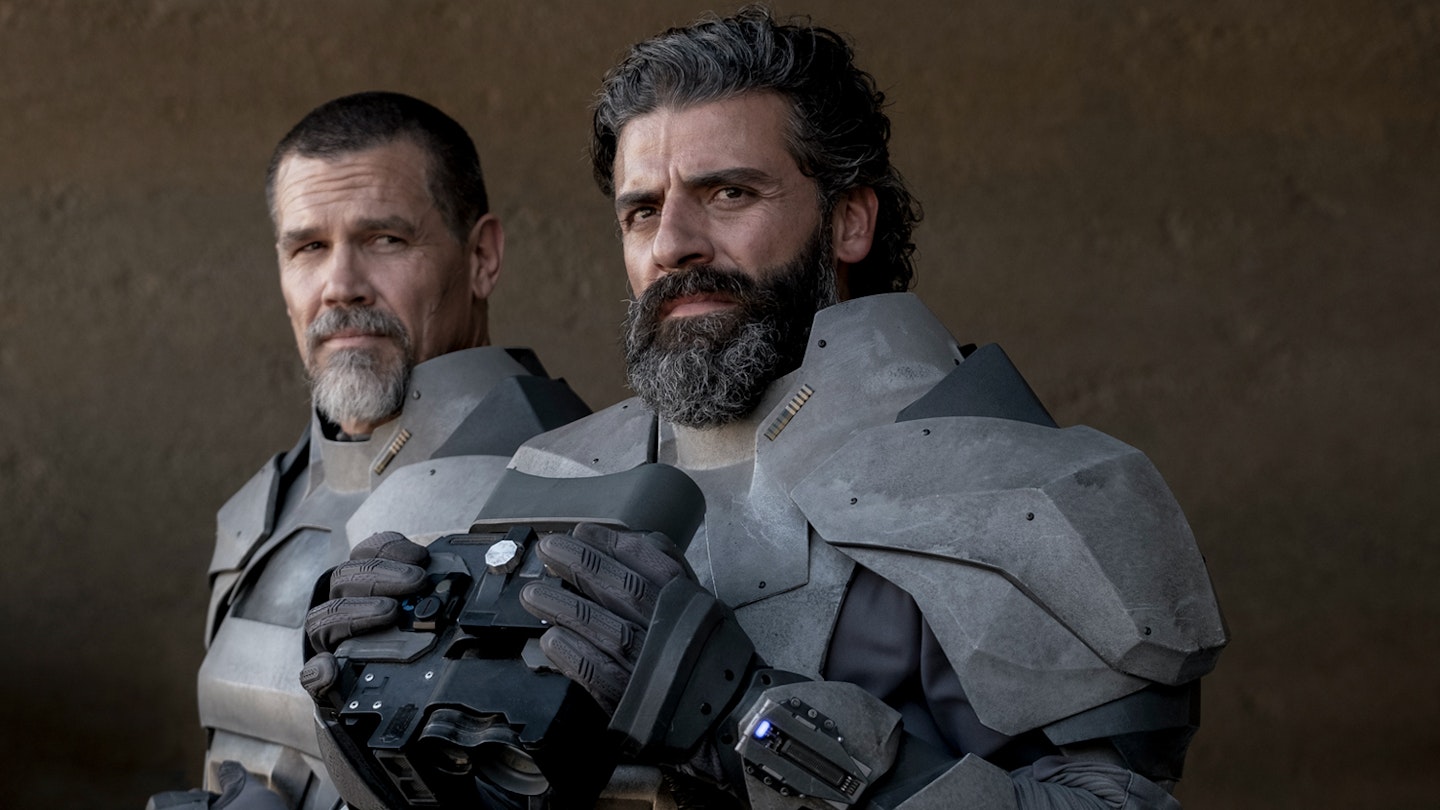Episodes viewed: 3 of 9
There’s a grand old Hollywood tradition of actors and directors taking roles in blockbusters and superhero films in order to gain the clout to make some odd personal indie, or pay tribute to a favourite but uncommercial property of the past. Think Guillermo del Toro using his Pacific Rim money to give us The Shape Of Water, his twist on Creature From The Black Lagoon, or Brie Larson using her Captain Marvel hype to make her directorial debut with Unicorn Store. Something similar but strange is happening now in the halls of Marvel. We’re at the stage now where the Marvel Cinematic Universe has the clout to give a superhero their own weird little side project, and pay tribute to their own fandoms: ancient TV sitcoms in this case. Judging by the first few episodes of WandaVision, now the first release of Marvel’s Phase Four thanks to Covid-related delays, what we have here is a one-for-us on a whole new scale.
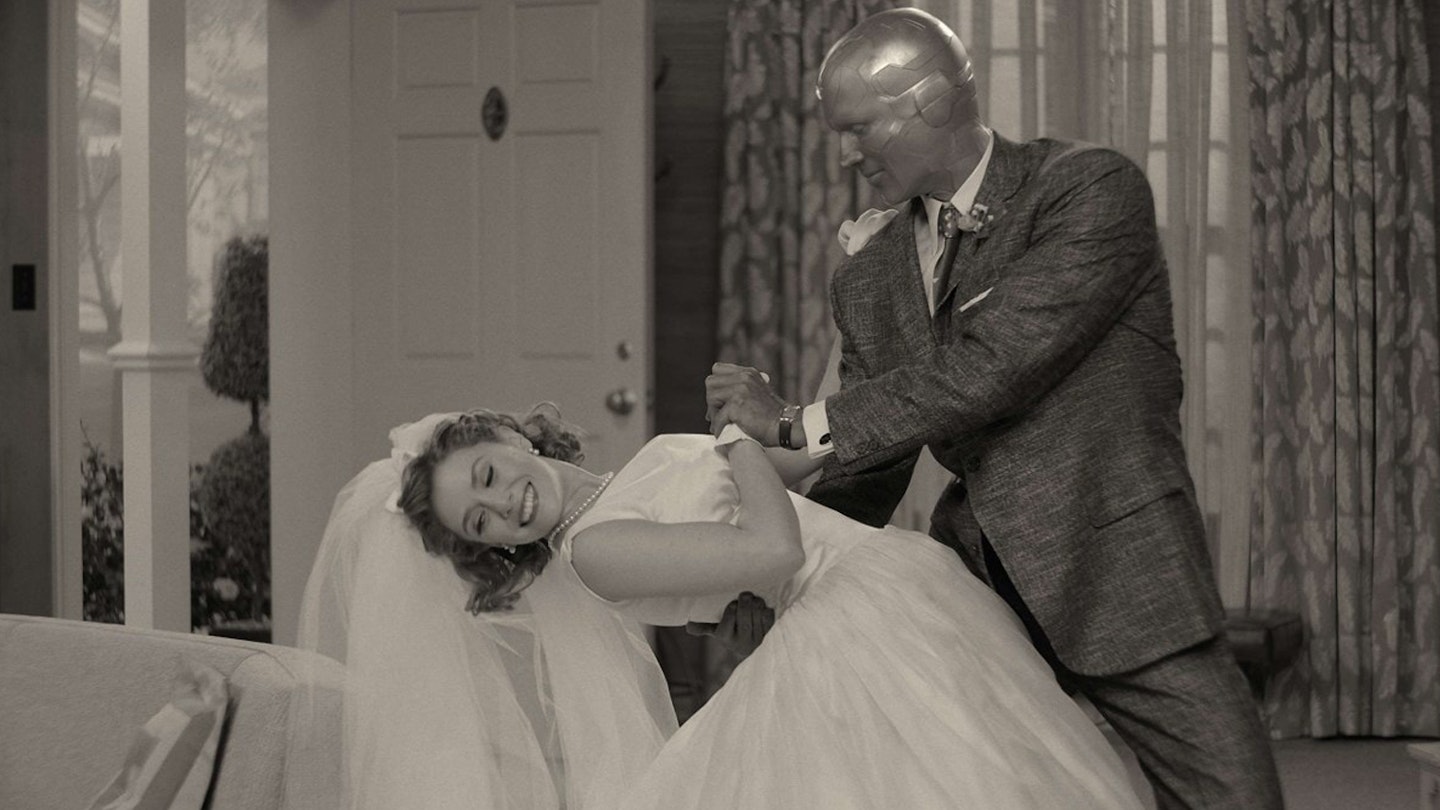
We open in what appears to be a sitcom of the late 1950s or early 1960s, a sort of I Love Lucy or The Dick Van Dyke Show pastiche about a reality-bending witch, Wanda Maximoff (Elizabeth Olsen), and her beloved robot husband Vision (Paul Bettany). They move into a new house and almost immediately face the crisis of an appointment on the calendar that neither of them remembers putting there. Wouldn’t you know, the boss (Fred Melamed) and his wife (Debra Jo Rupp) are coming to dinner, and Vision’s whole career could depend on the evening going well — but Wanda was planning a romantic anniversary evening and isn’t remotely prepared. It’s played almost as a straight tribute to those ancient shows, but there are tiny touches, here and there — beyond the employment of superpowers — that suggest that something is very wrong.
These are expertly produced and beautifully performed twists on TV history, and Olsen and Bettany commit hard to the cheesy comedy.
Episode two takes us forward a little in TV history, to the slightly later era of I Dream Of Jeannie and Bewitched, and episode three moves again to more The Brady Bunch territory. More and more cracks begin to show in the world of Wanda and her neighbours: Kathryn Hahn as her confidante Agnes, Emma Caulfield Ford as queen bee Dotty, and the rest. Strange, coloured objects sometimes appear amid the black and white, echoing Pleasantville’s fraying of reality, and Wanda seems able to rewind and reset elements of the stories that threaten to go off the rails. Plus, of course, she’s in a rapidly evolving succession of sitcoms rather than a stable world. Is she keeping herself there intentionally? Are we all trapped in Wanda’s visions? Or is there something larger at work? Comics fans will know that this couple has precedent for creating their own reality. When Wanda was bereaved on the page she reshaped the entire world to escape her trauma — and when that didn’t work she erased the powers of 90 per cent of the world’s mutants. Vision, too, has form in creating his own family and hoping for a peaceful life in the suburbs, only to find reality intruding in violent ways. Whatever is happening is not entirely internal: there are already signs in these three episodes that forces are policing the borders of this small reality, and that they may be armed and dangerous.
Marvel has suggested that the show’s nine episodes won’t only be a trip through sitcom history, so expect more familiar superhero business to come. That’s both a relief and not; these are expertly produced and beautifully performed twists on TV history, and Olsen and Bettany commit so hard to the cheesy comedy that you won’t initially miss Wanda’s usually quiet, traumatised figure or Vision’s beatific stoicism. But then, their original characters have room for more exploration too, after playing small supporting roles in the films to date, so the prospect of more from them-as-themselves (or rather her-as-herself, if we’re back in a reality where he’s dead) is not unwelcome.
Above all, it’s delightful to watch superhero characters in a big-budget outing and not have a clue what’s going to happen next. There is likely to be more formulaic stuff to come — we know there’s a big role planned for Teyonah Parris’ Monica Rambeau, and appearances due from Kat Denning’s Darcy and Randall Park’s FBI Agent Woo — but in the meantime, we get a bizarre trip back through beloved TV tropes that is a world away from the usual superhero punch-ups. If this is Marvel’s post-Endgame imperial phase, where they do whatever the hell they want because they can, sign us up.
